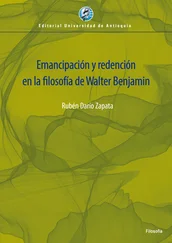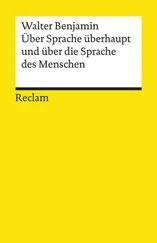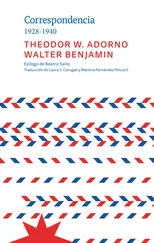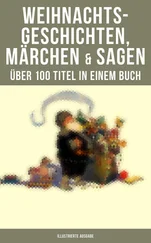To devour books. A strange metaphor. It makes one think. Indeed, no other artistic form is carried away, broken apart, and destroyed as it is being enjoyed to the extent that narrative prose is. Perhaps one really can compare reading and consumption. When thinking about it, one must above all bear in mind that the reasons why we need to nourish ourselves and why we eat are not exactly identical. Thus, the older theory of nourishment is so instructive because it derives from eating. It says: we nourish ourselves through the incorporation of the spirits of things eaten. Now we don’t nourish ourselves this way, but we eat for the sake of an incorporation that is more than a need for the bare necessities of life. And we read because of such an incorporation. Not to further our knowledge, the treasuries of our memory and our experience. Such psychological substitution theories are the theories of nourishment that assert that our blood comes from the blood that we consume, animal bones become our bones, and so on. It’s not that simple. We read to augment not our experiences but ourselves. But it is especially and always children who read in this way: incorporating, not feeling their way in. Their reading has an intimate relationship, much less to their education and knowledge of the world, than to their growth and their power. That is why it is something as great as any genius that is contained in the books they resolve to read. And that is the special significance of the children’s book.
“Kinderliteratur,” GS, 7.1, 250–7. Translated by Lisa Harries Schumann.
Broadcast on Southwest German Radio, Frankfurt, August 15, 1929. The broadcast was announced in the Südwestdeutsche Rundfunk-Zeitung for August 15, 1929, from 7:05–7:25 pm, as “ ‘Children’s Literature,’ Talk by Dr. Walter Benjamin.”
1The “Robber” and “Peas” languages are something like pig Latin, additional syllables put into words to create a language that is impossible for the uninitiated, particularly adults, to decipher. [Trans.]
2Jean Paul Richter’s “Leben des vergnügten Schulmeisterlein Maria Wutz in Auenthal: Eine Art Idylle” [Life of the Cheerful Little Schoolmistress Maria Wutz in Auenthal: A Kind of Idyll] appeared in 1793. For the passage quoted by Benjamin above, see Jean Paul’s Leben Fibels, Werke., vol. 6, ed. Norbert Miller (Munich: Hanser, 1975), 428. Benjamin appears to have quoted the slightly modified passage from Karl Hobrecker’s Alte vergessene Kinderbücher [Old Forgotten Children’s Books] (Berlin, 1824), 14.
3Johann Amos Comenius, Orbis Sensualium Pictus, often referred to as the first picture book for children.
4See Johann Bernard Basedow, Elementarwerk, illustrated by Daniel Chodowiecki (1774), and Friedrich Justin Bertuch, Bilderbuch für Kinder, 12 vols. (1792–1830).
5For a similar comment on these texts by Comenius, Basedow, and Bertuch, see Benjamin’s discussion of Hobrecker (above) in “Old Forgotten Children’s Books,” in SW, 1, 408 (“Alte vergessene Kinderbücher,” GS, 3, 16).
6Johann Paul Wich, “Wie das Kind ein Plätzlein sich merkt,” Steckenpferd und Puppe (Nördlingen, 1843), 57. See also Benjamin’s “A Glimpse into the World of Children’s Books,” SW, 1, 436 (“Aussicht ins Kinderbuch” [1926], GS, 4, 610) where Benjamin cites the same verse.
7See Friedrich Eberhard von Rochow, Der Kinderfreund. Ein Lesebuch zum Gebrauch in Landschulen (Frankfurt, 1776); see also Rochow’s Versuch eines Schulbuches für Kinder der Landleute (Berlin, 1772).
8See Wie Auguste und Wilhelmine ihre Puppe erzogen: Von einer Kinderfreundin (Berlin, 1837), 81–5; the passage was expanded by the editors of the GS based on Benjamin’s notations.
9See Johanna Spyri, Geschichten für Kinder und solche die Kinder liebhaben, 16 vols. (Gotha: F. A. Perthes, 1879–1895).
10Johann Peter Hebel, Schatzkästlein des rheinischen Hausfreundes (Tübingen: Cotta, 1811).
11In the 1770s, German educational reformers began the “philanthropist” movement, which sought to replace rote, Latin-based education with a more practical, experience-based curriculum. In 1774, Johann Basedow, mentioned by Benjamin above, established the Philanthropinum school in Dessau, which became the model for similar educational institutions of the period.
12See “Der größte Eindruck meiner Kindheit,” in Die literarische Welt (December 3, 1926), 2.
13See Philippe Soupault, “Charlie Chaplin,” in Europe, vol. 18 (November 1938), 395; for this passage, see also Benjamin’s 1929 review, “Rückblick auf Chaplin,” GS, 2, 158–9 (“Chaplin in Retrospect,” SW, 2, 223).
14See Ernst Bloch, “Rettung Wagners durch Karl May” [Rescuing Wagner through Karl May] in Anbruch 11 (January 1929), 4–10, and Bloch, Heritage of Our Times, trans. Neville and Susan Plaice (Berkeley: University of California Press, 1991).
15 Die Regulatoren in Arkansas [The Regulators in Arkansas] (Leipzig: O. Wigand, 1846) and Unter dem Äquator [Beneath the Equator] (Leipzig, 1861) were both written by the German traveler and adventure novelist Friedrich Gerstäcker. Nena Sahib oder Die Empörung in Indien: Historisch-politischer Roman aus der Gegenwart [Nena Sahib or The Outrage in India: Historical-political Novel of the Present], 3 vols. (Berlin, 1858/59), was written by Sir John Retcliffe, pseudonym of Hermann Ottomar Friedrich Goedsche.
CHAPTER 33. “Sketched in Mobile Dust”
A Novella 1
There he sat. He always sat there in those days, but not like this. Normally he would sit with his gaze fixed on something afar, but today the motionless man just glanced idly around. And yet it appeared to be in vain; he was looking but he did not see. The mahogany cane with the silver grip lay not beside him, leaning on the edge of the bench as was usually the case; he was holding it, steering it. It glided over the sand: O, and I thought of fruit; L, I hesitated; Y, and I was embarrassed, as if I were caught spying. For I saw that he was writing the thing like someone who doesn’t want to be read: each character looped into the next, as if each wanted to merge with the other; in almost the same spot followed M PI A, the first letter already beginning to vanish as the most recent ones emerged. I approached. Even that didn’t make him look up — or shall I say wake? — so familiar to him was my presence. “Reckoning again, are you?” I asked, not letting on that I had seen. I knew that his musings were focused wholly on the imaginary expenses of distant journeys, to Samarkand, or to Iceland, voyages that he would never take. Has he ever left the country? Except for this secret journey, of course, the one he made to flee the memory of a wild and, as they always say, worthless and shameful young love: Olympia, whose name he had just now absentmindedly conjured before him.
“I’m thinking of my street. Or of you, rather; they’re one and the same. The street where a word from you became so alive, like none I had heard before or since. It’s what you once told me in Travemünde: in the end, every adventure worth telling is wound around a woman, or at least a woman’s name. For you said it provides the grip on the thread necessary for a story to be passed from one teller to the next. You were right, but when I ascended that hot street, I could not yet fathom how strange it was, and why, that for a few seconds my own steps in the deserted, reverberating alley seemed to me to be calling out as if with a voice. The houses around me had little in common with those for which this little southern Italian town was famous. Not old enough to be weathered and not new enough to be inviting, it was a gathering of whims from the limbo of architecture. Closed shutters underscored the obduracy of the gray facades and the glory of the South seemed to have withdrawn into the shadows, which became more frequent among the earthquake supports and arches of side streets. Every step I took carried me farther from everything for which I had come; pinacoteca and cathedral remained behind, and I would hardly have found the power to change direction, even if the sight of red wooden arms, candlesticks of a sort, had not instilled in me new material for reverie. It occurred to me only now that these grew in regular intervals from the walls on both sides of the street. Reverie, I say, precisely because I could not fathom, and did not even attempt to explain, how the remains of such archaic forms of lighting in the poor but nevertheless irrigated and electrified mountain village had managed to survive. So it seemed to me perfectly reasonable, a few steps farther, to come across shawls, curtains, scarves, and floor mats that people here seemed just to have washed. A few crumpled paper lanterns in front of the murky window panes completed the picture of pathetic and shabby housekeeping. I would have liked to ask one of the residents how I might get back to town by a different route. I had had enough of the street, not least because it was so devoid of people, which is why I had to abandon my purpose and, nearly humbled, almost tamed, walked back the way I had come. Determined to make up for lost time, and to atone for what seemed to me as a defeat, I forewent lunch and, even more bitterly, my noonday rest, and after a short climb up the steep stairs, I was standing on Cathedral Square.
Читать дальше












